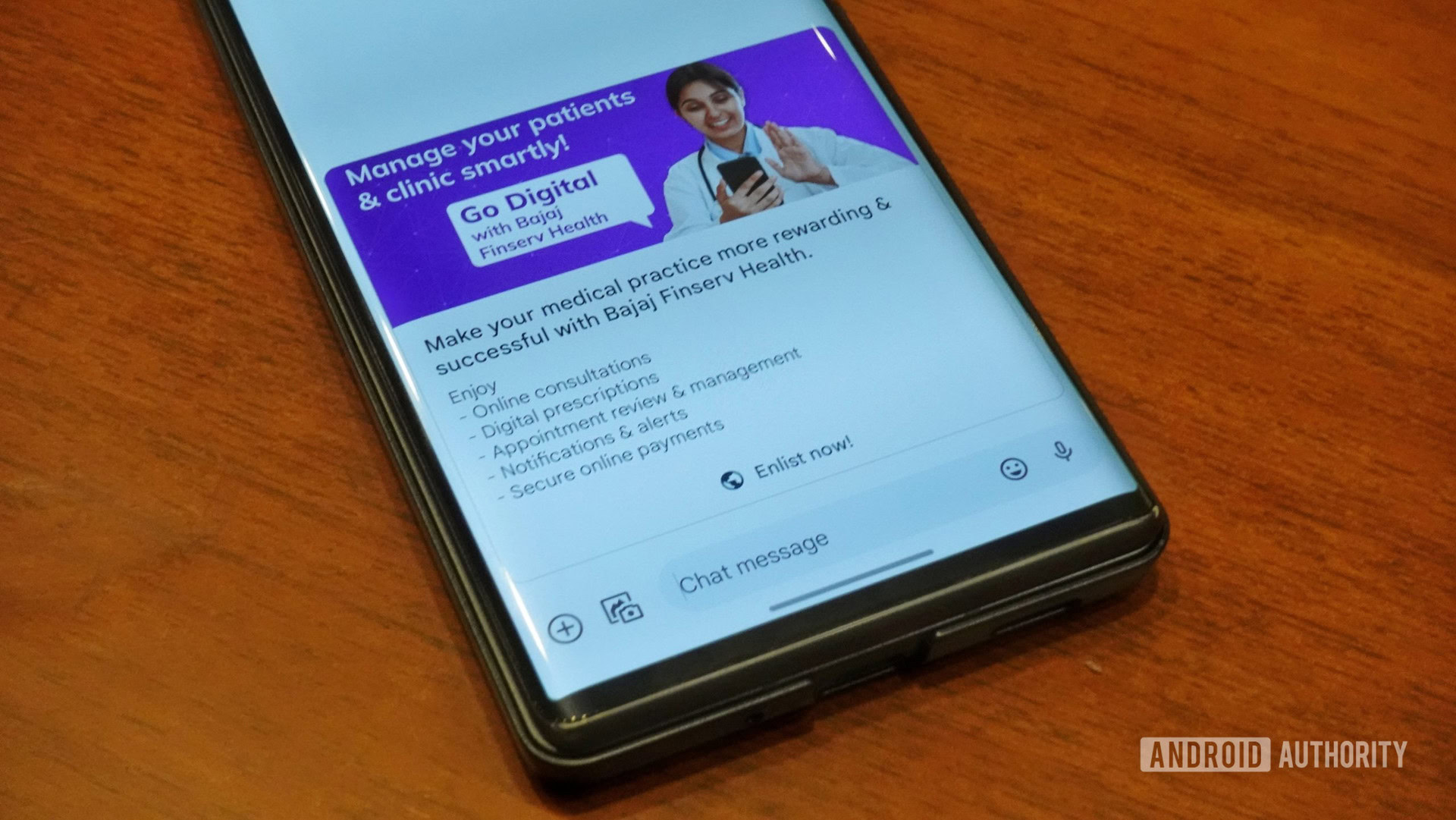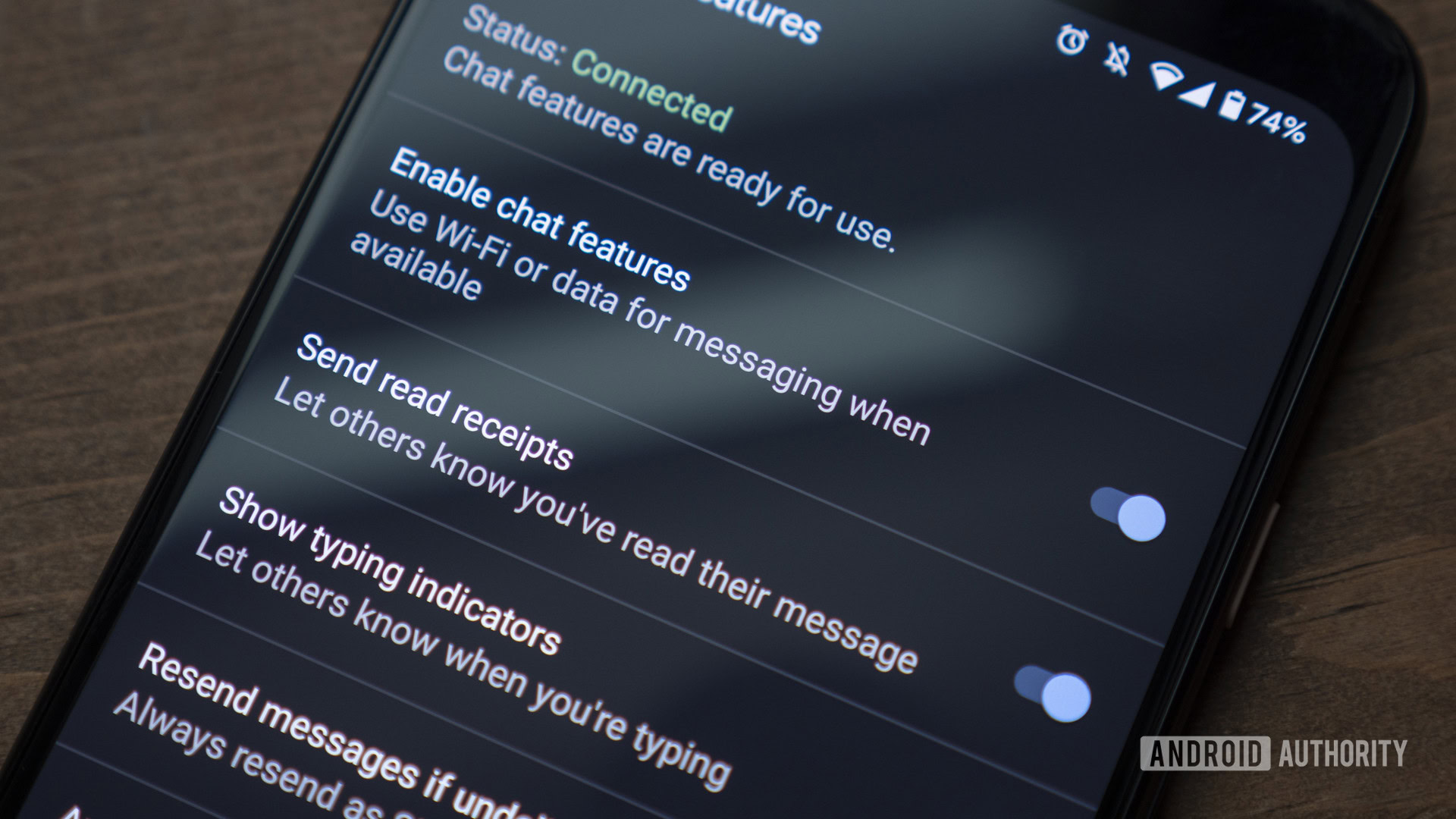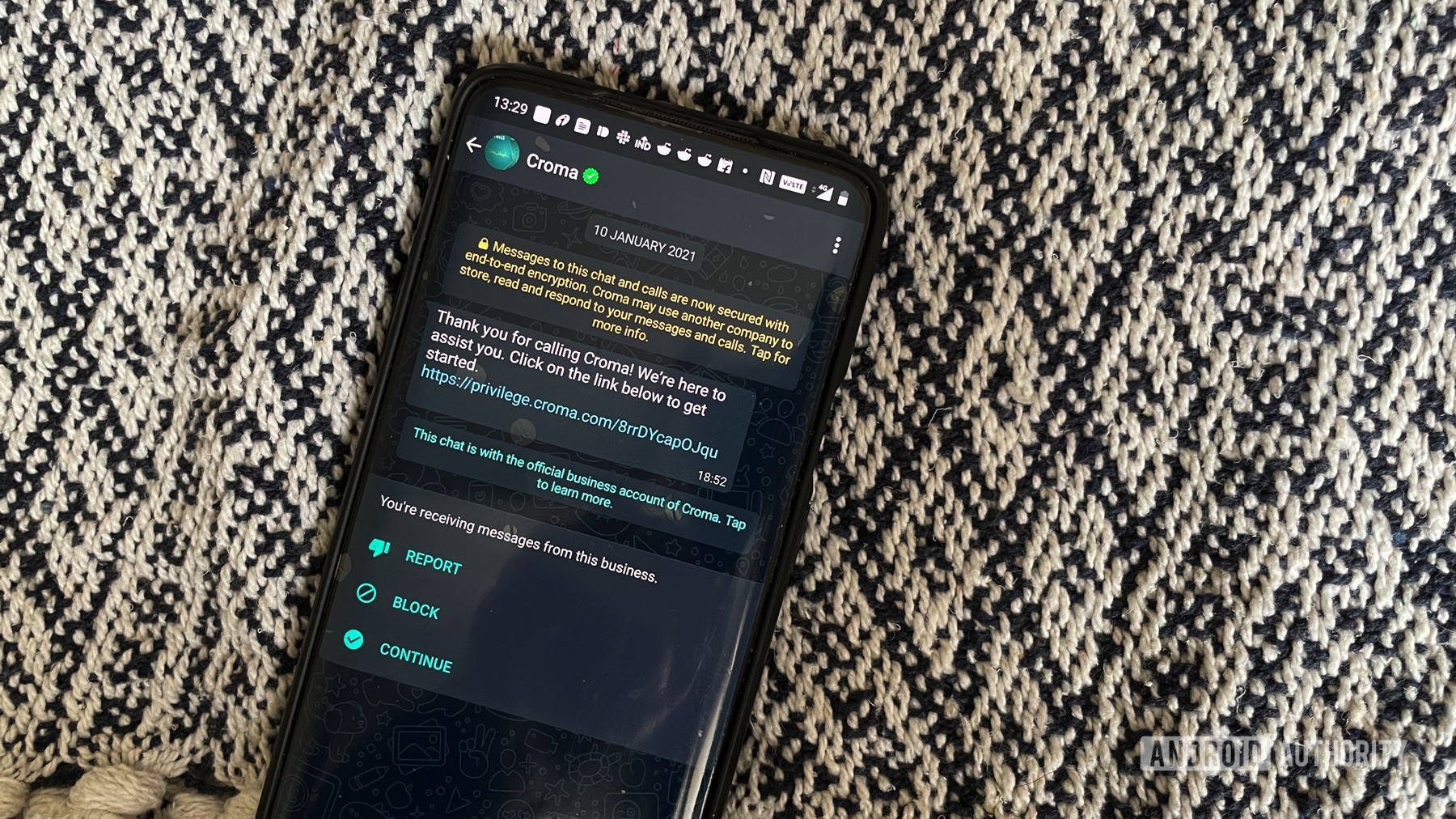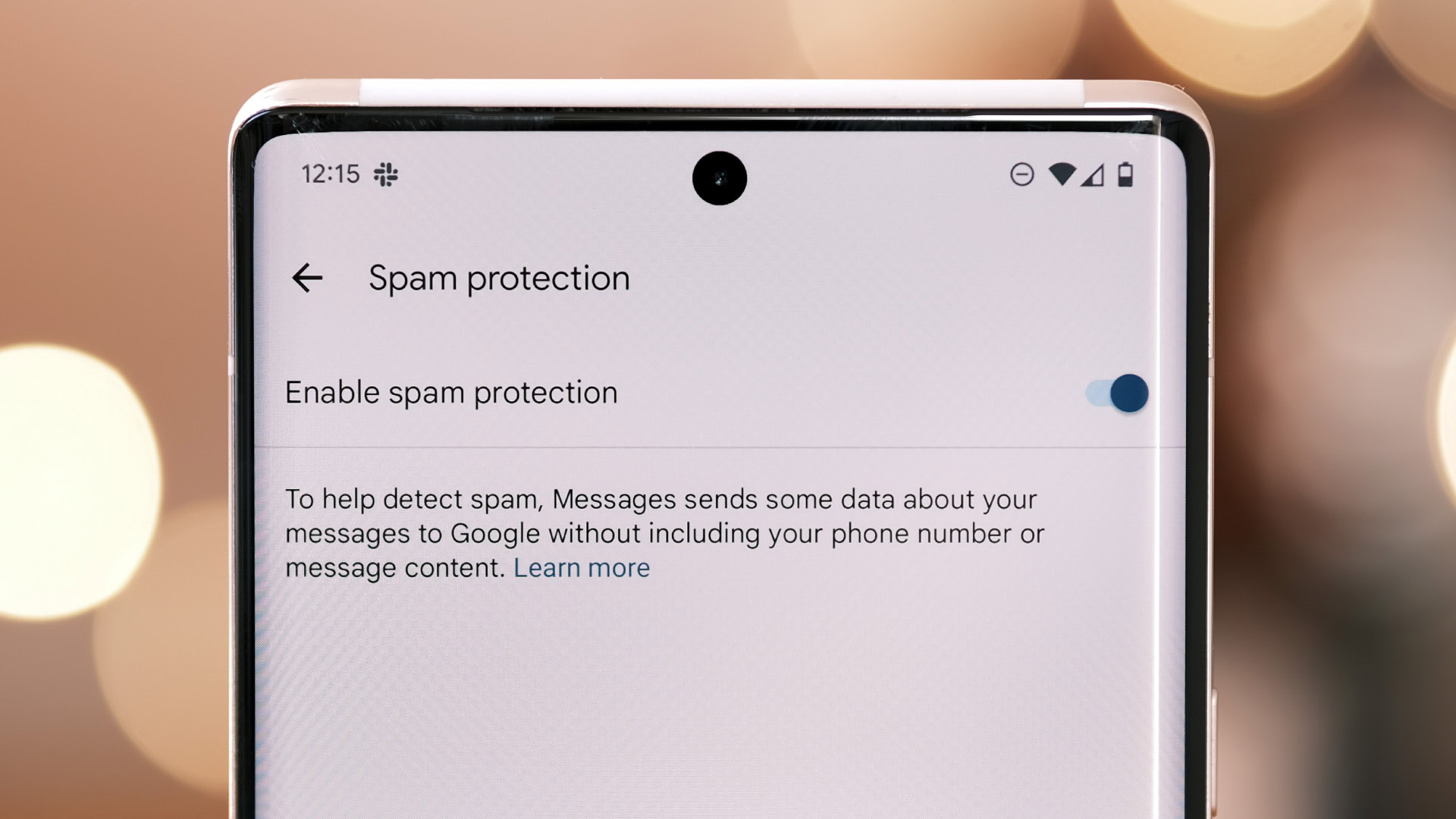Affiliate links on Android Authority may earn us a commission. Learn more.
I enabled RCS on Google Messages and all I got was ads (Update: Google responds)
Published onMay 28, 2022

Update (May 30, 2022): A spokesperson for Google India issued the following statement to Android Authority, following the publication of this story:
We are aware that some businesses are abusing our anti-spam policies to send promotional messages to users in India. We are disabling this feature in India while we work with the industry to improve the experience for users.
We have also updated this article to clarify that this is impacting users in India, and not globally.
Original article (May 28, 2022): As I scrolled through my social media feed earlier last week, I came across several reports claiming that Indian businesses were abusing the RCS messaging standard to broadcast unsolicited advertisements to users in India. I’d personally never used RCS for an extended period of time — most third-party SMS apps don’t support it, and almost everyone around me uses WhatsApp anyway. Nevertheless, I decided to set Google Messages as my phone’s default text messaging app to see if there was any truth to those claims.
I was greeted by my first RCS advertisement (pictured at the top of the post) within the first hour of switching back to Google Messages. It didn’t offer a way to opt out of receiving future communication, something you’d expect from a traditional SMS message or email.
It didn’t take long for more similar advertisements to follow — I received a total of three messages within a nine-hour period. By that point, I gave up on blocking individual chats and turned off RCS altogether.
RCS-based ads look much more like lit-up billboards than nondescript newspaper ads.
Text-based advertisements are not new, but RCS allows senders to go one step further with embedded images, buttons, and special text formatting. This makes RCS-based ads look much more like lit-up billboards than nondescript newspaper ads. Unfortunately, many Android OEMs use Google Messages as the default SMS app, automatically activating RCS if your carrier supports it. In other words, RCS advertisements could soon become part of the default messaging experience for some, if not all, Android users.
We asked, you told us: Most of you have RCS messaging and use it
While many have speculated that these ads are the handiwork of businesses abusing the open RCS protocol, I’m not quite convinced that’s the whole picture. Here’s why.
Ads in Google Messages: Abusing the system or intended behavior?

So why am I skeptical that businesses are simply abusing RCS? You see, many network providers outside the US, mine included, rely on Google’s Jibe RCS Cloud platform. While Jibe enables users to easily send RCS messages across different carriers, it’s also likely to blame for the ads many Indians have encountered as of late.
Every RCS ad I received was from a “verified business” within the Google Messages app. To understand how that’s possible, you don’t need to look much further than Jibe’s own website, which lists a few business messaging “success stories.” Out of the dozen or so examples, a sizable chunk focus solely on how RCS has boosted sales revenue, clickthrough rates, and app installs through “content-rich” promotions. Those words all relate to one thing: advertising.
Here’s a statistic straight from Google: Subway sold 140% more sandwiches through RCS ads than it did through SMS. That shows just how effective (and attention-seeking) rich content can be. Only a handful of Google’s case studies discussed consumer-facing applications for RCS’ rich feature-set. Check these examples:
As a whole, it seems as if Google intends RCS messages to be used for covert ads just as much as for useful customer interaction. However, I don’t believe those two can co-exist — marketing simply doesn’t belong in a space meant for meaningful conversation. Other chat services realized this fact a long time ago and have implemented business-to-consumer messaging in much less obtrusive ways.
Marketing simply doesn’t belong in a space meant for meaningful conversation.
WhatsApp, for example, offers a similar service but has a strict internal policy governing the program. Besides requiring prior approval from WhatsApp, businesses must also explicitly collect user consent before initiating any communication on the platform. Even then, they can only initiate chats with pre-approved message templates. This policy only permits businesses to send certain canned updates (pictured below) and maybe the occasional marketing message.

While I’ve received WhatsApp messages from numerous local businesses over the past few years, they’ve never surprised me. By contrast, RCS’ free-for-all approach seems ripe for abuse. Without any oversight or approval process, it’s no surprise that spam has already overrun the platform.
To be clear, I don’t think Google is actively encouraging spam. RCS is an open and interoperable protocol, similar to email and SMS. But even if Google cannot control the source of spam, it should absolutely be able to detect it once it arrives on the Jibe network or your smartphone. I’d also argue that the Jibe website shouldn’t highlight obtrusive business advertising as an RCS “success story.”
See also: Google still doesn’t understand what privacy means
Can Google save RCS from spam?

So what can Google do to improve the frustrating RCS experience for users in India? One approach could be to reclaim more control over the business communication segment of RCS, especially for services based on its Jibe platform. Rather than trusting third-party message aggregators and carriers to police themselves, Google could implement some form of rate-limiting and moderation.
For now, though, improving Google Message’s automatic spam detection seems like the easy win. It’s also not too much to expect — Google’s spam filters propelled Gmail to success over a decade ago. If it manages to accomplish something similar with SMS (and RCS), Google Messages could actually turn into a selling point for Android. However, it remains to be seen if Google even wants to clamp down on this practice.
Our take: Google’s RCS push is too little too late
In case you’re wondering how WhatsApp Business manages to keep things under control, the platform limits the number of new chats a business can initiate within a 24-hour period. It also has a per-conversation pricing model. Finally, if multiple users report, flag, or block the chat, those limits are automatically downgraded.
Ads in Google Messages could eventually lead to a widespread boycott of RCS.
Google needs to take defensive measures before RCS-based ads and marketing messages become more prevalent. That would motivate an even larger percentage of Android users to disable chat features altogether, reducing RCS adoption and increasing fragmentation.
Related: How to like a text on Android phones
Both fragmentation and limited adoption should be particularly worrisome for Google. The company has been trying to court Apple to adopt RCS on iPhones for a while now. Needless to say, that won’t happen with unsolicited advertising running rampant on the platform. After all, Apple’s iMessage platform prohibits the practice and that policy probably won’t change anytime soon.